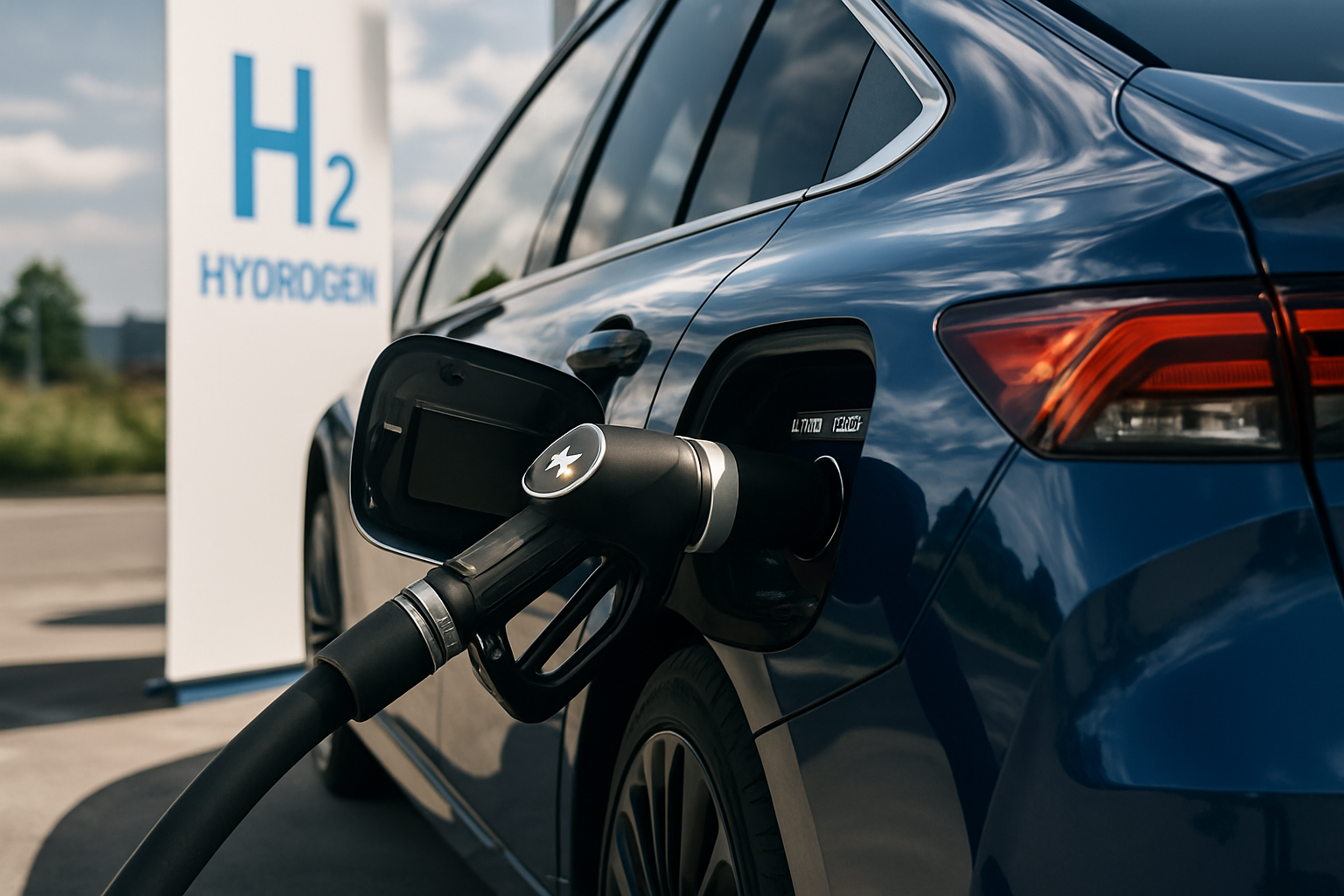Biofuel Algae: The Green Revolution in Automotive Fuel
Imagine a world where your car runs on pond scum. It's not science fiction, but a burgeoning reality in the automotive industry. Algae-based biofuels are emerging as a promising solution to reduce our dependence on fossil fuels and cut carbon emissions. This green revolution is set to transform the way we power our vehicles, offering a sustainable alternative that could reshape the automotive landscape.

Algae are simple photosynthetic organisms that can be found in both freshwater and marine environments. They’re incredibly efficient at converting sunlight and CO2 into biomass, which can then be processed into various types of biofuels, including biodiesel, bioethanol, and even jet fuel.
The potential of algae as a biofuel source lies in its impressive productivity. Some species can double their biomass in as little as six hours and produce up to 60% of their weight in oil. This high yield, combined with their ability to grow in non-arable land and even wastewater, makes algae an attractive option for large-scale biofuel production.
Cultivation and Processing
Algae cultivation for biofuel production typically occurs in open ponds or closed photobioreactors. Open pond systems are large, shallow artificial ponds where algae grow naturally, while photobioreactors are controlled environments that optimize growing conditions for maximum productivity.
Once harvested, the algae undergo a series of processes to extract the oil. This typically involves breaking down the cell walls, separating the lipids, and then refining the oil into usable fuel. The remaining biomass isn’t wasted either – it can be used for animal feed, fertilizer, or even to produce biogas.
Recent advancements in genetic engineering and cultivation techniques have significantly improved the efficiency of algae biofuel production. Scientists are now able to create algal strains that produce more oil or grow faster, further enhancing the viability of this technology.
Environmental Benefits and Challenges
One of the most compelling advantages of algae biofuels is their potential for carbon neutrality. As algae grow, they absorb CO2 from the atmosphere, which is then released when the fuel is burned. This creates a closed carbon cycle, potentially reducing the net carbon emissions of vehicles running on algae-based fuels.
Moreover, algae can be grown on non-arable land, avoiding competition with food crops – a common criticism of other biofuels like corn-based ethanol. They can also be cultivated using wastewater, helping to clean water while producing fuel.
However, the path to widespread adoption of algae biofuels isn’t without challenges. The high costs of production, energy-intensive harvesting and processing, and the need for large amounts of water and nutrients are significant hurdles. Researchers are actively working on solutions, such as developing more efficient harvesting methods and creating algal strains that require fewer inputs.
Impact on the Automotive Industry
The potential impact of algae biofuels on the automotive industry is substantial. As pressure mounts to reduce carbon emissions, car manufacturers are increasingly looking towards alternative fuels. Algae-based biofuels could offer a drop-in replacement for conventional diesel or gasoline, requiring minimal modifications to existing engine designs.
Several major automakers have already begun experimenting with algae biofuels. In 2012, Audi announced a partnership with biofuel company Joule Unlimited to develop algae-based e-diesel. Similarly, ExxonMobil has invested heavily in algae biofuel research, partnering with Synthetic Genomics to develop advanced biofuels.
The integration of algae biofuels into the automotive sector could lead to new engine designs optimized for these fuels, potentially improving efficiency and performance. It could also spark innovation in fuel distribution networks and create new opportunities in the agricultural and biotechnology sectors.
Future Prospects and Challenges
While algae biofuels hold immense promise, several challenges need to be addressed before they can become a mainstream automotive fuel. The most significant hurdle is cost – current production methods make algae biofuels considerably more expensive than conventional fuels. However, as technology improves and production scales up, costs are expected to decrease.
Another challenge is the energy balance of production. Critics argue that the energy required to cultivate, harvest, and process algae may outweigh the energy content of the fuel produced. Ongoing research aims to improve the energy efficiency of the entire production process.
Despite these challenges, the future of algae biofuels in the automotive industry looks promising. With continued investment in research and development, we could see algae-powered cars becoming a common sight on our roads in the coming decades. As we strive for a more sustainable future, algae biofuels represent a beacon of hope in the quest for greener transportation.
In conclusion, algae biofuels stand at the forefront of automotive innovation, offering a sustainable alternative to fossil fuels. While challenges remain, the potential benefits to both the environment and the automotive industry are too significant to ignore. As research progresses and technology advances, we may soon find ourselves filling up our tanks with fuel derived from these tiny green organisms, driving towards a cleaner, greener future.




